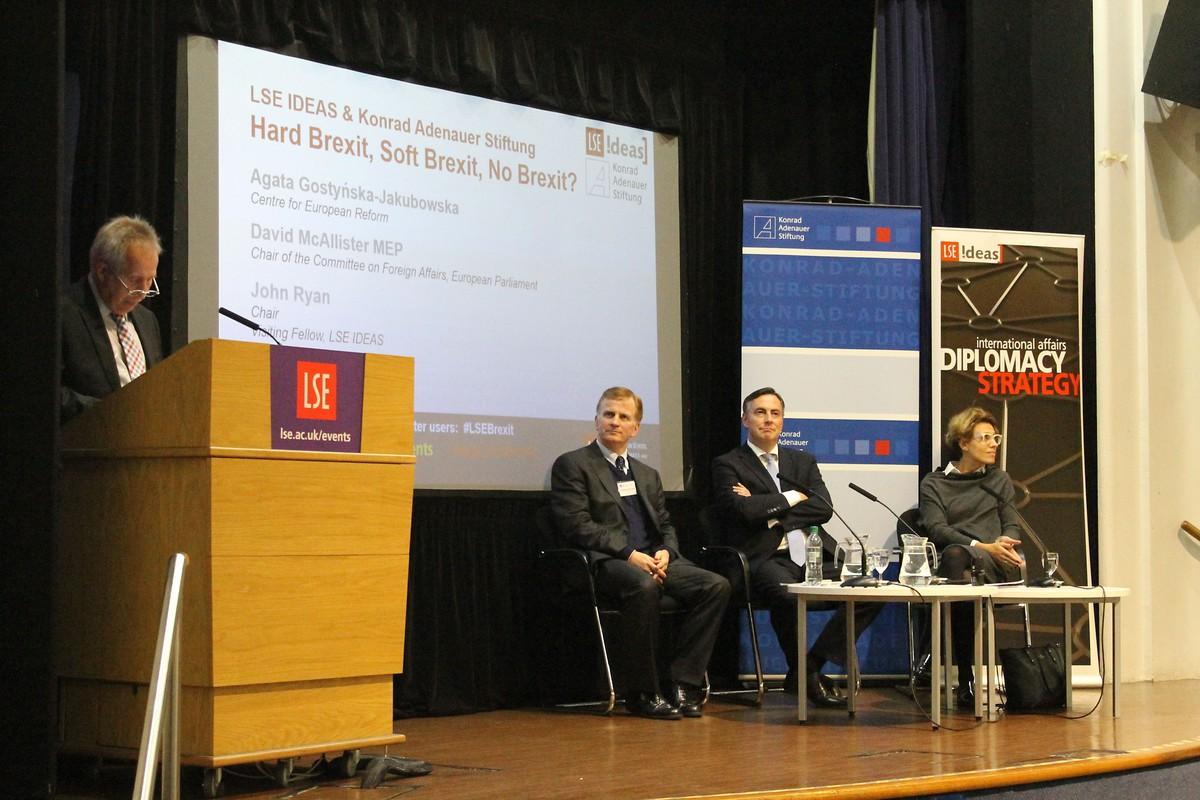Hard Brexit, Soft Brexit, No Brexit? - Foundation Office United Kingdom and Ireland
Event Reports
On 19th October, the Konrad-Adenauer-Stiftung teamed up with LSE IDEAS, LSE’s foreign policy think tank, to host a public panel discussion titled ‘Hard Brexit, Soft Brexit, No Brexit?’ which featured highly expert panellists David McAllister MEP, Agata Gostynska-Jakubowska and John Ryan.
This public event followed an expert roundtable workshop with participants from the United Kingdom, Germany and other EU-Member States about the different Brexit-Scenarios.
David McAllister is Chairman of the Committee on Foreign Affairs in the European Parliament and Vice President of the European People's Party; Agata Gostynska-Jakubowska is a research fellow at the Centre for European Reform; and John Ryan is Visiting Fellow at LSE IDEAS, and a senior adviser for private and public sector organisations on Brexit.
Starting with the UK’s hopes on the outcome of the future trade negotiations, Mr McAllister made clear that a non-member state simply cannot have more rights than a member state of the European Union. He underlined that a future comprehensive trade agreement is about damage limitation and stressed that any deal would be better than no deal at all.
McAllister, who is the son of a former British Army Officer from Glasgow, illustrated that if the United Kingdom wants to deal with the EU, it is inevitable that it will be expected to follow European rules, at least to a certain extent, simply because the EU is the bigger market.
Finally, the German politician reminded the audience that the clock is ticking. The UK has roughly one year left to make a deal with the European Union if it is to allow sufficient time for the European Parliament, and the national parliaments, to ratify the deal and bring it into effect by 30th March. McAllister ended his speech with a passionate statement, saying that he feels truly heartbroken that the very country that brought the European Single Market to life is now the country to leave it.
Agata Gostynska-Jakubowska, research fellow at the Centre for European Reform, followed McAllister’s speech with some key comments and further discussion points. She suggested that the sequencing of the talks complicates the negotiations because a government that does not know how future trade terms will look cannot agree on its financial settlements. Article 50 of the Treaty of the European Union is in that sense designed to fail. The biggest mistake Prime Minister May made so far was to think that she could simply by-pass European Commission Chief-negotiator Michel Barnier and engage directly with national Governments, Mrs Gostynska-Jakubowska pointed out.



